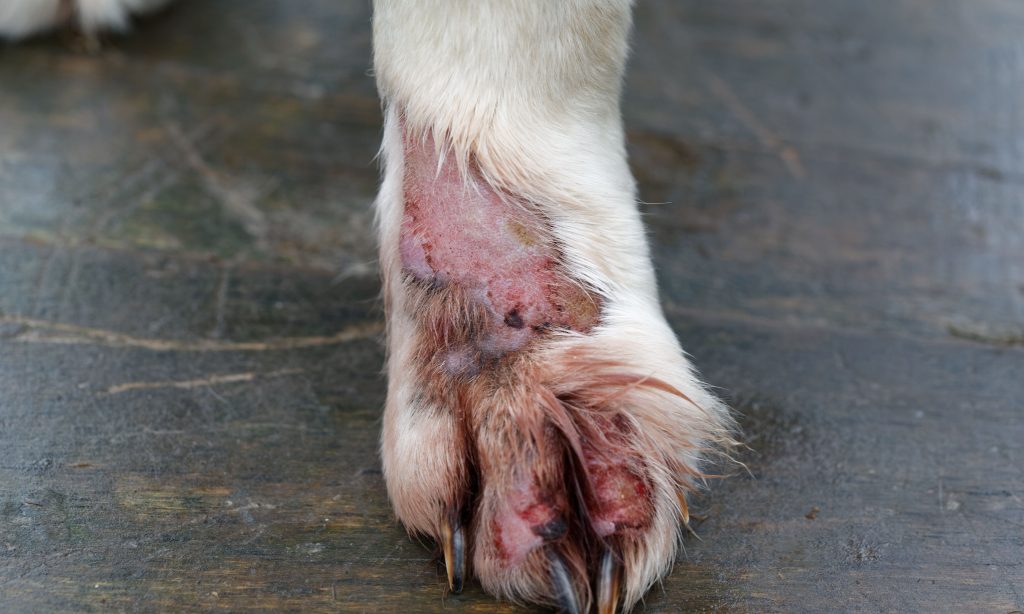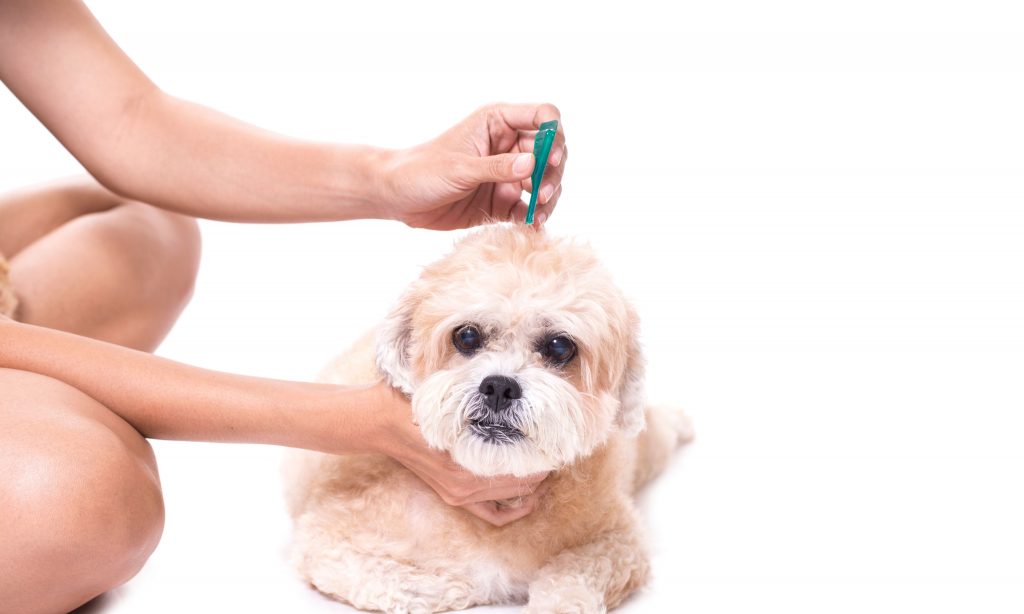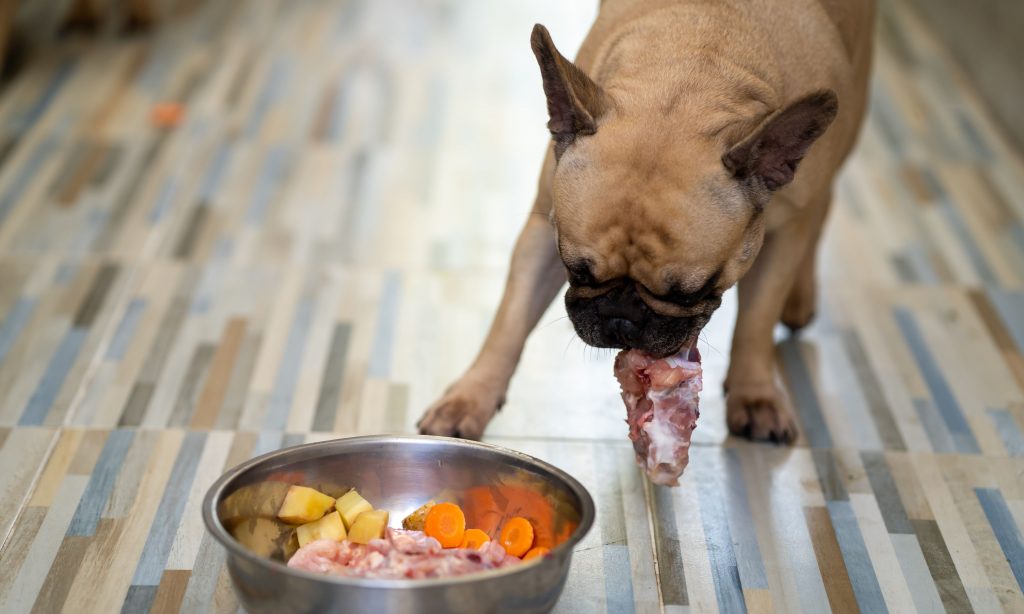This post aims to educate dog parents on the causes, symptoms, and treatment options for hot spots on dogs. The blog post will provide readers with practical information on how to prevent hot spots from developing and how to treat them effectively if they do occur. By the end of this blog post, dog parents will have a better understanding of how to manage hot spots in their dogs and feel empowered to take action to prevent and treat them.
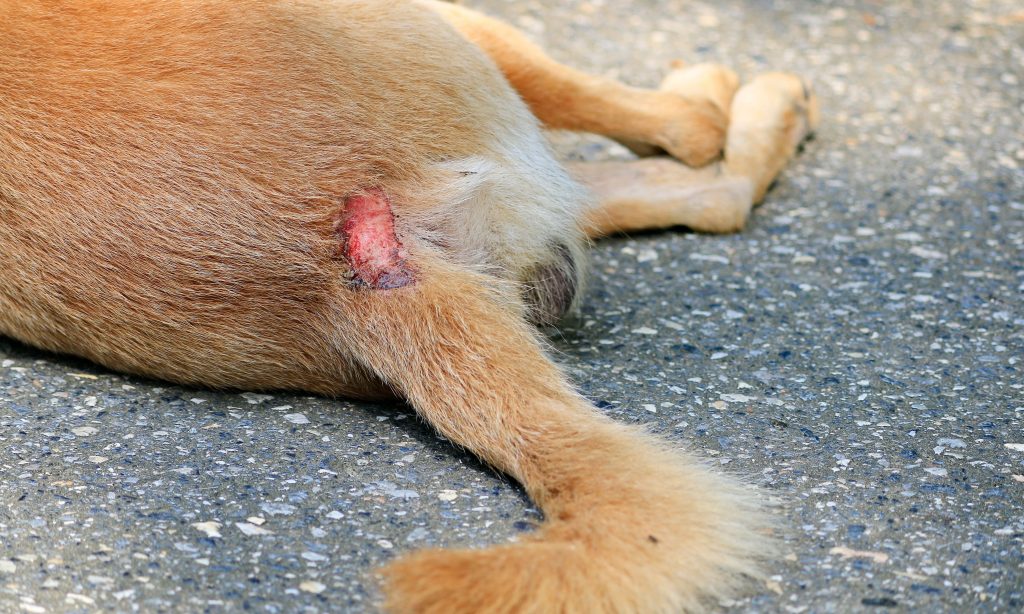
Hot spots, also known as acute moist dermatitis, are a common skin condition in dogs that can cause severe itching, redness, and inflammation. These painful and unsightly sores can develop quickly and can be difficult to treat if not caught early. Understanding the causes, symptoms, and treatment options for hot spots can help you provide relief for your dog and prevent further complications.
Causes:
Hot spots are caused by a combination of factors, including bacterial infections, allergies, flea infestations, and underlying medical conditions such as hormonal imbalances or autoimmune disorders. They often develop in response to an itch or irritation, such as from an insect bite or an allergy. Dogs with thick coats or those that are prone to excessive grooming or licking are more susceptible to hot spots.
Symptoms:
The symptoms of hot spots include red, swollen, and painful sores, often accompanied by intense itching and licking. If not treated promptly, hot spots can rapidly worsen and become infected.
Prevention:
Prevention is the key to managing hot spots. Regular grooming and keeping your dog’s coat clean and free of debris can help prevent hot spots from developing. Flea and tick control, as well as avoiding common allergens, can also help.
If your dog develops hot spots, it’s important to take action quickly. The first step is to clean the affected area with a mild antiseptic solution and clip the hair around the sore to reduce the risk of infection. Your veterinarian may recommend a medicated shampoo or cream to help soothe the skin and reduce inflammation. Oral antibiotics may also be prescribed if there is an infection.
Home Remedies:
Some home remedies such as aloe vera gel, apple cider vinegar, or coconut oil can provide relief for mild cases of hot spots. However, it is important to consult with your veterinarian before trying any home remedies, as some remedies may not be suitable for all dogs and some may even worsen the condition.
Conclusion:
Hot spots can be a painful and unsightly condition for dogs. Understanding the causes, symptoms, and treatment options for hot spots can help you provide relief for your dog and prevent further complications. Remember that every dog is unique and might need a different approach, if you need more personalized tips and strategies for your specific dog’s hot spot condition don’t hesitate to chat with us on our website, we will be happy to help.
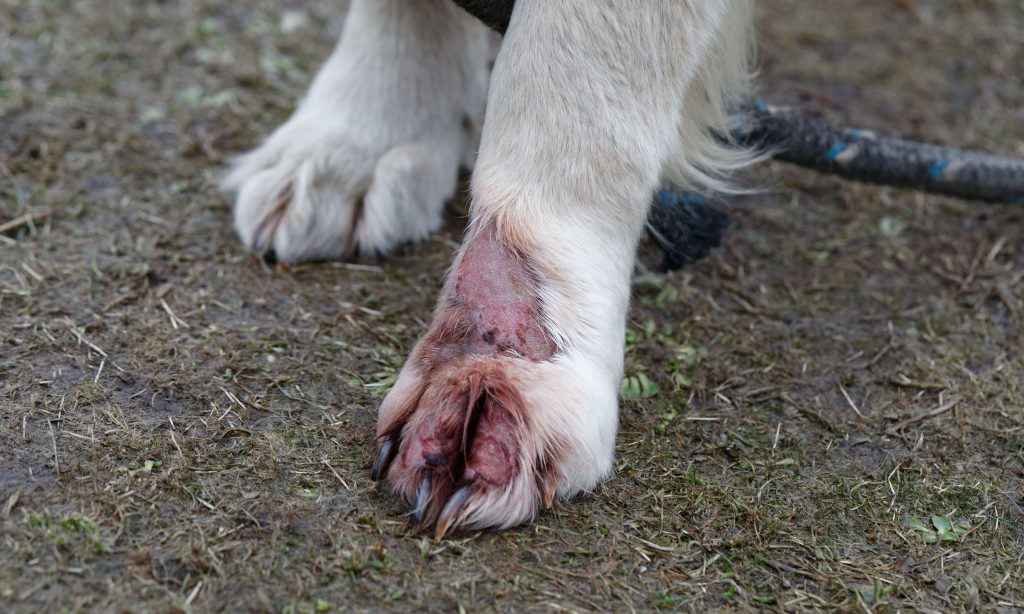
Frequently Asked Questions:
What are hot spots and what causes them in dogs?
Hot spots, also known as acute moist dermatitis, are common skin conditions in dogs that are caused by a combination of factors, including bacterial infections, allergies, flea infestations, and underlying medical conditions.
What are the symptoms of hot spots in dogs?
The symptoms of hot spots include red, swollen, and painful sores, often accompanied by intense itching and licking.
How can I prevent hot spots from developing in my dog?
Regular grooming and keeping your dog’s coat clean and free of debris, flea, and tick control, as well as avoiding common allergens, can help prevent hot spots from developing.
What is the best way to treat hot spots in dogs?
Cleaning the affected area with a mild antiseptic solution, clipping the hair around the sore, medicated shampoo or cream, and oral antibiotics may be recommended by a veterinarian to treat hot spots.
Are there any home remedies that can help with my dog’s hot spots?
Some home remedies such as aloe vera gel, apple cider vinegar, or coconut oil can provide relief for mild cases of hot spots. However, it is important to consult with your veterinarian before trying any home remedies, as some remedies may not be suitable for all dogs and some may even worsen the condition.
What should I do if my dog’s hot spots persist or worsen despite treatment?
If your dog’s hot spots persist or worsen despite treatment, it is important to consult with your veterinarian again to reevaluate the underlying cause and adjust the treatment plan as needed.
How long does it take for hot spots to heal?
The healing time for hot spots can vary depending on the severity of the condition and the treatment used. With proper treatment, hot spots can begin to improve within a few days, but it may take several weeks for them to completely heal.
Can hot spots recur in dogs?
Yes, hot spots can recur if the underlying cause is not addressed. It is important to work with your veterinarian to identify and address any underlying causes to prevent recurrences.
Are there any lifestyle changes I can make to prevent hot spots in my dog?
Yes, maintaining a healthy diet, regular grooming, and reducing stress can help prevent hot spots from developing.
How can I get more personalized tips and strategies for my specific dog’s hot spot condition?
Reach out to your veterinarian or you can chat with us on our website. We will be happy to provide you with more personalized tips and strategies for your specific dog’s hot spot condition.

